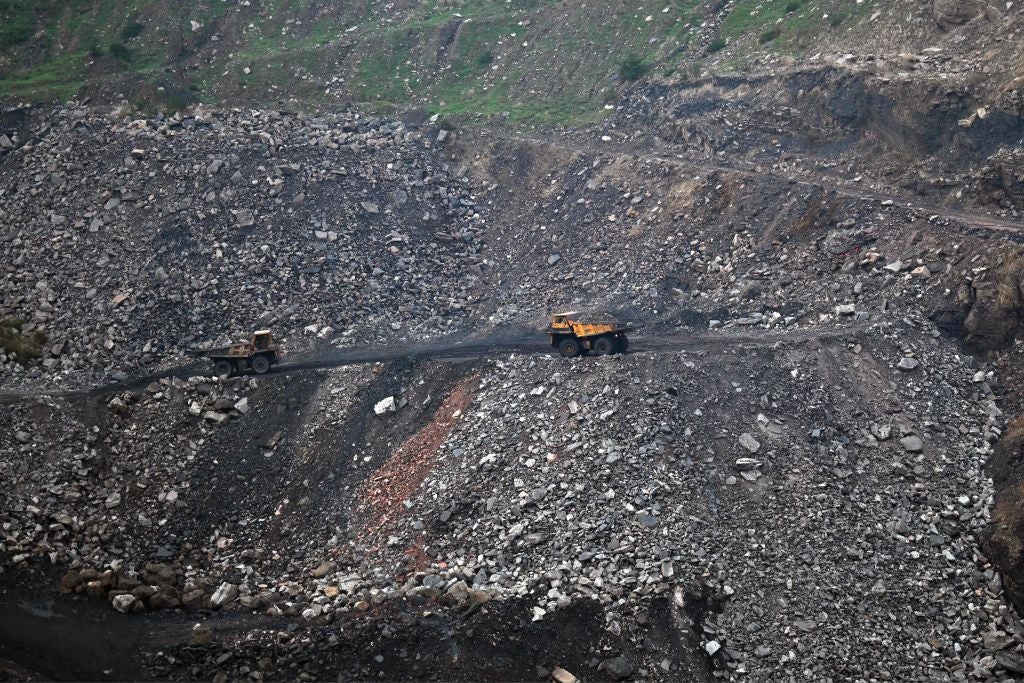
India’s Government launched its 9th round of commercial auctions for its coal mines on Wednesday, as the country looks to boost domestic production of the fossil fuel to meet increasing energy demand.
The auction will see 26 mines from four states offered out; 12 in Madhya Pradesh, eight in Chhattisgarh, five in Jharkhand and one in the southern state of Telangana.
Seven of the 26 mines have already been fully explored, with the remaining 19 partially explored, the Ministry of Coal said in a press statement on Monday. The majority of the mines on offer produce non-coking coal.
The aim of the commercial auction is to “enhance the participation of more private players in the coal sector, fostering competition, efficiency, innovation and contributing to sustainable development,” the ministry said.
This year, India has worked towards boosting domestic production of coal, which remains the country’s primary energy source, although its stance on the fossil fuel has become complicated as it tries to balance meeting increased demand with calls for a complete phase-out of coal by international bodies.
A report from energy watchdog Global Energy Monitor, published in April, warned that global coal power must be phased out five-times faster if climate goals are to be maintained.
At the start of the year, the government announced that no coal-fired power plants would be retired until at least 2030 in a bid to maintain energy security. In March, India’s Coal Minister, Pralhad Joshi, said that the country will have enough coal reserves by 2026 to begin exporting the fuel, a move that would shift India from a net importer to a net exporter of coal. Then in May, the Ministry of Coal said that the country had grown domestic coal production by 47% over the last nine years.
India’s commitment to coal power wavered in the second half of this year. In May, the government set out plans to close approximately 30 coal mines over the next three years, stating that it will use the free land for reforestation and increasing water supplies. One month later, the ministry announced that it will not consider any proposals for new coal plants for the next five years as it looked to boost its renewables capacity. Currently, the country is the second-biggest consumer and producer of coal after China.
More recently, at the end of November, the government announced plans to revive India’s ailing underground coal mining industry as the struggle to meet rising power demand across the country continues. Most of India’s domestic coal production comes from opencast mines.
The ministry now aims to triple output from its underground coal mines by 2028 after the industry has remained in decline for decades. In its press statement on the latest coal mine auction round, the ministry reaffirmed its “unwavering commitment to propel the [coal] sector forward”.



